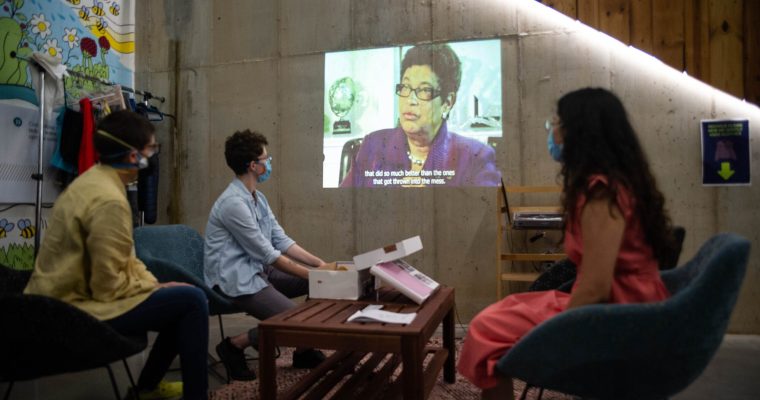
As a design scholar working on projects that strive to advance social justice, I encounter the problem of collecting, archiving, and sharing stories often, in both design discourse and my own practice. For example, it is not uncommon for researchers to approach marginalized communities as a way to think through what digital tools might advance the particular needs of the community. In such contexts, it soon becomes clear that digital technologies fail as “solutions” to the often-systemic socio-economic-political barriers that communities face. These researchers note, however, that many individuals and communities they meet through these research activities appear to be looking for ways to make their voices heard and their stories known. These researchers highlight how the experiences changed their own perspectives, arguing for more ways to reach and engage people across class, social, and cultural barriers. They further reflect on how openly and eagerly the communities share their stories and express that the process itself is meaningful and worthwhile by helping participants reflect on a particular situation or life event, or forge new connections.
Collecting, archiving, and sharing stories has thus been identified as possible practices to advance social justice, especially given the low cost and accessibility of digital technologies. But is it possible that the same collective force that is gained through large archives of stories masks and even betrays stories—taking away from what is meaningful and worthwhile in the acts of storytelling and listening?
In this theoretical inquiry, I put forward an understanding of what we owe to stories as a way to both critique and advance (big data) practices of collecting, archiving, and sharing stories. These practices are often cast as a form of empowerment, giving voice, and a potential contribution to the advancement of social justice. I question this dominant framing by demonstrating how activities of storytelling and listening may indeed be oppressive, advancing age-old practices of extraction and colonization in new guises. Such strategies also risk taking away from what is meaningful and worthwhile in the acts of storytelling and listening by tokenizing and using stories for political purposes without reaching the kind of understanding and commitments that is the potential of stories.
In response, I advance the hypothesis that doing justice to stories rests on reconnecting practices of storytelling and listening to story scenes, broadly defined as the very particular settings of storytelling and listening. Doing so, I argue, highlights the inherently relational nature of storytelling and listening that is key to doing justice to stories. I examine this relational nature by showing how it may be understood in at least three ethical senses—reciprocity, responsiveness, and communion—borne out of the plurality of philosophical positions on what it means to relate to another. Each of the senses, in broad strokes, brings to light a different aspect of what it may take to do justice to stories.
This research resides in my larger interest in design methods such as participatory design, co-design, and participatory action research and how the relationships forged with communities can be democratic and just.
Related publications:
- Nassim Parvin, “Doing Justice to Stories: Engaging with Digital Story Collection Practices,” Engaging Science, Technology, and Society. 4 (2018): 515–534.
